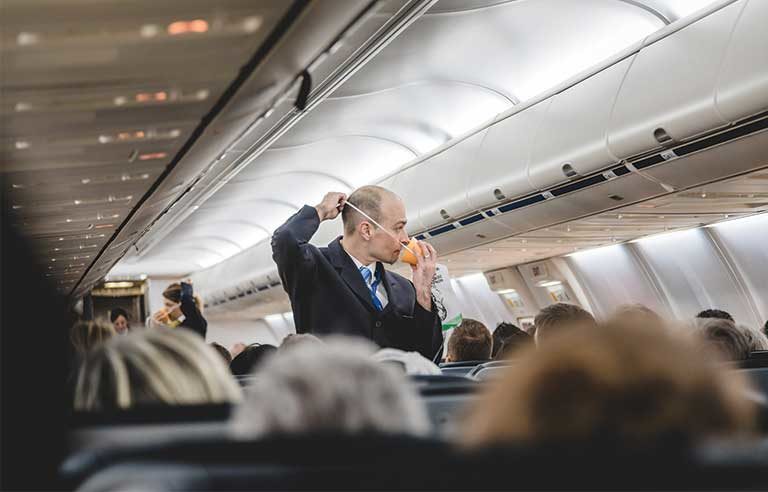Cabin Air Safety Act: Lawmakers introduce legislation in House, Senate

Washington — Legislation introduced in both chambers of Congress is aimed at enhancing the safety of the air supply on commercial aircraft to protect crew and passengers.
On April 10, Sen. Richard Blumenthal (D-CT) introduced the Cabin Air Safety Act of 2019 (S. 1112) in the Senate. Rep. John Garamendi (D-CA) introduced an identical bill (H.R. 2208) in the House.
The legislation would require carbon monoxide detectors to be installed on commercial aircraft and monitored during flights. In addition, flight attendants, pilots, airplane maintenance personnel, airport first responders and emergency response teams would have to undergo training on how to respond to incidents on aircraft involving smoke or fumes at least once a year.
The Federal Aviation Administration would be directed to develop a standardized form for flight attendants and other personnel to report details of incidents involving smoke or fumes. Investigations would have to take place no more than seven days after an incident to identify the cause and repair any replaced, worn, missing, failed or improperly serviced components of the aircraft.
The agency also would have to develop a website to make the data collected available to the public.
An FAA safety alert issued in March 2018 advises airlines to enhance their operational procedures to minimize onboard exposure to smoke and fumes. It also recommends they assess “[policies] and procedures regarding odor, smoke, and/or fumes recognition, differentiation and mitigation.”
A key source of onboard fumes, according to the Association of Flight Attendants-CWA, is the cabin air supply system when engine oil and hydraulic fluid contaminate air ventilation.
“Most Americans go to work with the expectation of breathing clean air,” AFA International President Sara Nelson said in an April 10 press release. “Flight attendants don’t have this guarantee, and it is past time for that to change. Our workspace is the public’s travel space, and in that space today, crews and passengers are breathing toxins and it has to stop.”
S. 1112 was referred to the Senate Commerce, Science, and Transportation Committee on April 10, and H.R. 2208 was referred to the House Aviation Subcommittee on April 11.
Post a comment to this article
Safety+Health welcomes comments that promote respectful dialogue. Please stay on topic. Comments that contain personal attacks, profanity or abusive language – or those aggressively promoting products or services – will be removed. We reserve the right to determine which comments violate our comment policy. (Anonymous comments are welcome; merely skip the “name” field in the comment box. An email address is required but will not be included with your comment.)

